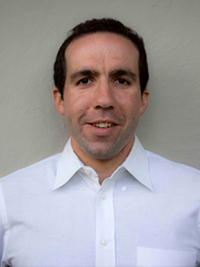
Department of Medicine, Hematology and Oncology
University of California, San Francisco
San Francisco, CA
Developing next-generation cellular therapies to remodel immunosuppressive pancreatic tumor micro-environments.
Overview
Aim: Therapy
Immunotherapies have been a revolutionary treatment for many tumors, but their promise remains unfulfilled in pancreatic cancer. The immune-suppressive nature of the pancreatic tumor microenvironment (TME) has proven refractory to check-point inhibitors, bispecific antibodies, and cellular therapies. Although many powerful agents have been identified that can over-write this suppressive environment their therapeutic potential is limited due to systemic toxicities. For example, high dose regimes of the cytokine IL-2 can drive tumor regression but also elicits severe toxicity because cytokine acts on healthy bystander tissue.
Here we propose a new treatment paradigm, where immune cells are genetically engineered to locally deliver therapeutic agents directly into tumors – bypassing systemic toxicity. In our preliminary work we have utilized a novel cell-sensing receptor platform (synNotch) to engineer primary T cells to sense a tumor antigen of interest, and in response, to locally express a genetically encoded cytokine payload only within the targeted tumor. We found that engineering chimeric antigen receptor (CAR) T cells with tools for cell autonomous, but tumor triggered, cytokine production can overcome previously unsurmountable barriers to CAR T cell infiltration and activation.
In this project we will develop and apply tools that allow CAR T cells to deliver multiple cytokines precisely and locally to tumors. We will combine key effector cytokines to both drive CAR T cell infiltration and activity as well as locally reprogram the TME and stimulate endogenous immunity. This reversal of the suppressive TME will allow for a cellular therapy that can overcome critical unmet challenges in target antigen heterogeneity and CAR T cell persistence. In our work we will couple our cellular reprograming of the TME with thorough high-dimensional analysis to generate mechanistic insight, with a final goal of the development of a next-generation cellular therapy for future clinical translation.